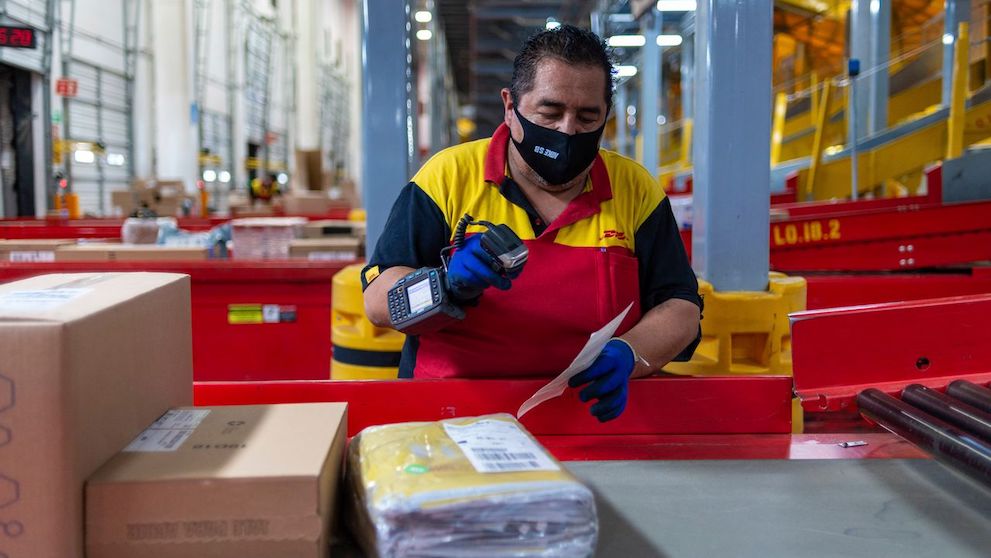The United Arab Emirates (UAE) is a country that consists of seven emirates: Abu Dhabi, Dubai, Ajman, Fujairah, Ras Al Khaimah, Umm Al Quwain, and Sharjah. The median age of its 9.37 million population is relatively young, at 34 years old. Combined with its prime geographic location that provides access to large markets in Asia, Africa, and Europe, the UAE represents a truly global hub for commerce.
With a booming, diversified economy and favourable tax climate, the UAE remains an excellent place for Australian businesses looking to expand their reach or start a new venture.
With annual trade between the two countries totalling US$7.1 billion, the UAE is actually Australia's largest trading partner and second-largest source of investment in the Middle East, according to the Commissioner General of Australia.
However, with its vast distance, strict regulations, and varying customs practices, anyone looking to ship goods or send packages overseas to one of the seven emirates must do their due diligence to ensure that their shipments arrive on time and in good condition.
Trying to calculate how much it costs to ship a package to the UAE from Australia? Or how long does it take to send parcels from Australia to the UAE? Discover answers to these questions below.
UAE import restrictions and regulations
It is first important to be aware of the regulations in both countries when it comes to importing goods from one to another. For imports to Australia, there are strict labelling rules that could affect goods shipped from the UAE. Similarly, in the UAE, imports must comply with local customs laws, including declarations regarding any prohibited or restricted items.
Prohibited items in UAE
A list of banned shipping items in the UAE includes:
- Controlled/recreational drugs and narcotic substances;
- Publications and artwork that contradict or challenge Islamic teachings and values;
- Gambling tools and machines;
- Pirated content;
- Counterfeit currency
- Items used in black magic, witchcraft, or sorcery
- Goods from Israeli origin or bearing Israeli trademarks or logos;
- Crude ivory and rhinoceros horn products;
- Three layers fishing nets;
- Original engravings, prints, lithographs, sculpture and statues in any material
- Used, reconditioned and inlaid tires;
- Radiation-polluted substances;
- Cooked and home-made foods;
- Exotic, protected and endangered animals and certain breeds of dogs, and
Restricted items in UAE
Certain goods like medicines, animals, and weapons can be imported only after receiving necessary permits from the UAE Customs authorities.
The list of restricted shipping goods in the UAE includes:
1. Pets and domestic animals
Individuals can import cats and dogs into the UAE after receiving a permit from the Ministry of Climate Change and Environment.
Your pet's vaccination card, health certificate, passport, and details about this microchip must be provided. Certain pets may be needed to test for rabies before entering the UAE.
Other live animals, birds and ornamental fish can also be imported into the UAE after receiving a permit from the Ministry of Climate Change and Environment.
2. Pork products
Labels for pork and pork-containing products have to comply with the general labelling requirements and clearly state that the product contains pork. Food labels may not include pictures of pork, nor may recipes printed on the labels list pork.
Pork products must then be retailed with all pork and non-Muslim products in designated restricted sections of retail stores, which are clearly marked for non-Muslims.
3. Agricultural products
Shippers can import seeds, tubers, outdoor seedlings, and honeybees into the UAE after receiving an import permit from the Ministry of Climate Change and Environment.
4. Tobacco products
All cigarettes imported into the UAE must contain a Digital Tax Stamp with end-to-end traceability.
5. Medicines and drugs
While there is zero tolerance for controlled drugs or recreational drugs, UAE nationals and residents can obtain permission to import medicine for personal use, according to the Ministry of Health and Prevention.
However, the imported medicine cannot exceed the personal need of a period of three months for non-controlled medicines and one month for controlled and semi-controlled medicines.
For pharmaceuticals, no medicine may be imported into and distributed in the UAE unless a Pharmaceutical Import Licence has been awarded by the Ministry of Health (MoH), according to the UAE Federal Law N°4 of 1983 on the pharmaceutical profession and industry.
6. Vehicles
Imported vehicles must have:
- Non-modified steering wheels;
- No damage to the outer body;
- Have not been subject to accidents like submerging, fire, collision, rollover, etc;
- Were not previously used as taxicabs or by police;
- Head restraints in all seats and airbags for the driver and the front passenger;
- Safety belts and Anti Braking System (ABS) for all new vehicles, and
- An alarm to notify when drivers exceed the speed limit of 120 kilometres in cars and 100 kilometres on buses.
Vehicles can only be exported from the country of manufacture and to companies with commercial registration for business activities in vehicle sale and import within the UAE. If the importer is not a citizen of any of the Gulf Cooperation Council (GCC), he must have a valid residence authorisation.
7. Technical equipment
Equipment such as radio transmitters, listening or recording devices, and satellite phones require a licence from Telecommunications and Digital Government Regulatory Authority.
8. Weapons
Weapons, ammunition, body protection, and other related equipment require permission from the Ministry of Interior before entering or transiting the UAE.
What to ship to United Arab Emirates (UAE)
Currently, Australia’s main shipping exports to the UAE include meat (beef, sheep, and lamb), vehicle parts and accessories, telecom equipment and parts, as well as aluminium oxide, according to Australia’s Department of Foreign Affairs and Trade.
Business owners looking to expand to the UAE can consider the top products sold online in the country, which includes electronics, home appliances, food, and beauty products, according to World Trade.
United Arab Emirates (UAE)’s documentation requirements
Before packing any goods for shipment, shippers must be aware of all documentation requirements for entering the UAE.
Import documents typically required include a customs invoice, packing list, certificate of origin, bill of lading/airway bill, shipper's export declaration form, insurance certificate, and health certificate, depending on what type of goods are being shipped.
For food imports, they must also contain the following information:
- Name of the food;
- Ingredients in descending order of proportion;
- Name of the food additive shall be mentioned under more than one class. However, it is preferable to use the class which specifically and accurately reflects the function of the additive material in the food it constitutes.
- Nutritional declaration;
- Net weight volume;
- Name and address of the manufacturer or the packer in case the packer is not the manufacturer;
- Country of origin;
- Expiry dates, with any special conditions for the storage of the food shall be declared on the label if the validity of the date depends thereon;
- Instructions for use;
- Production and expiry dates shall be declared for the products having mandatory shelf life;
- Source of animal if the food item or one of the components contain animal content;
- Mandatory warning and advisory statements and declarations;
- Use of irradiation, and
- Production (batch) lot number to be declared in a coded manner or any other indelible marks.
All documents must be translated into English or Arabic if they are written in another language.
United Arab Emirates (UAE)’s customs duties, tariffs, and taxes
The UAE levies import and export duties on commercial goods depend on:
- Which emirate the business is registered in
- Whether the business is registered on the mainland or in a free zone
- Nature of goods being moved
- Source and destination of the goods being moved
- Free Trade Agreements (FTA) between the UAE and the other country
- Any other applicable laws
Generally, a 5% customs duty is levied on imported goods. Certain categories like pharmaceuticals and agricultural products are exempted. Meanwhile, a 50% to 70% custom duty is levied on luxury goods like tobacco. The full list of tariffs can be found on the website of the UAE’s Federal Authority For Identity, Citizenship, Customs & Port Authority.
Many UAE “free zones”, like Dubai International Financial Centre (DIFC) and Jebel Ali port, have also been established. Over here, shippers don’t need to pay customs duties. However, goods may only be imported by an entity which is registered in the UAE.




























